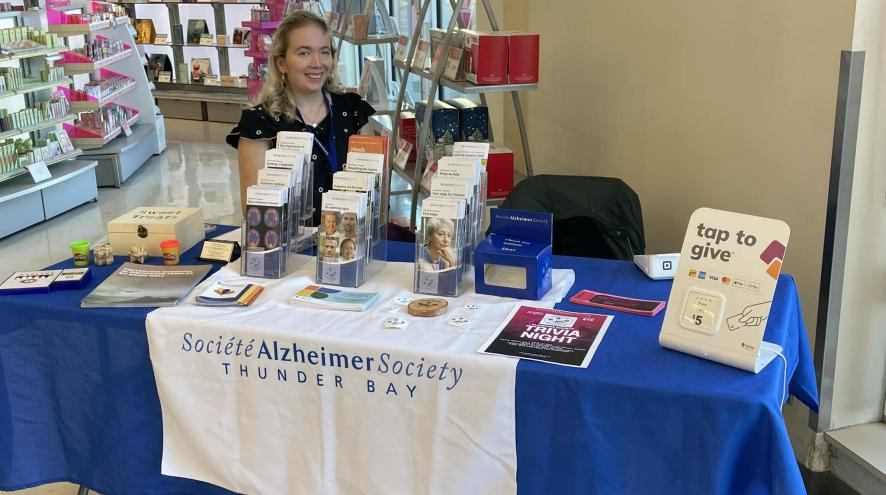Education Across the Region
Our education offerings are designed to inform, support, and inspire people living with dementia, care partners, professionals, and community members.

At the Alzheimer Society of Thunder Bay, we believe knowledge is key to empowerment. Our education offerings are designed to inform, support, and inspire people living with dementia, care partners, professionals, and community members. Our team strives to build a more dementia-friendly region, one conversation at a time.
Types of Education We Offer
Whether you're a caregiver, a community group, a health care professional, or someone simply interested in learning more, we offer education that meets your needs. Sessions can be delivered in person or virtually, and are tailored to fit your audience.
Popular Topics:
- Dementia 101: Understanding the disease and its warning signs
- Brain & Body Health: Reducing risk and promoting wellness
- Effective Communication Strategies
- Dementia-Friendly Communities
- Overview of Local Supports & Services
Online Learning Resources
We encourage ongoing, self-paced education through:
Alzeducate.ca: A free learning hub for caregivers, professionals, and community members.
MedicAlert® Safely Home®: A Canadian registry helping locate those who may wander.
Alzstore.ca: Products designed to promote safety and support daily living.
Specialized Training
GPA® (Gentle Persuasive Approaches)
This evidence-based, interactive dementia care training equips health care staff with practical tools to support persons living with dementia using respectful, person-centred approaches. Ideal for long-term care staff and professional teams.
🧠 Fact or Fiction: Understanding Dementia
Misinformation fuels stigma. Let’s clear that up.
FICTION: “Alzheimer’s only affects seniors.”
FACT: While age is a risk factor, people in their 40s and 50s can also develop the disease.
FICTION: “If I forget things, I must have dementia.”
FACT: Mild memory lapses are common with aging. A diagnosis involves much more than forgetfulness.
FICTION: “There’s nothing I can do after diagnosis.”
FACT: Many live meaningful lives with the right support, early intervention, and healthy habits.
